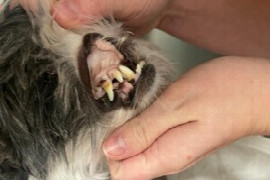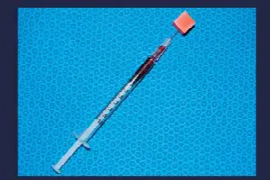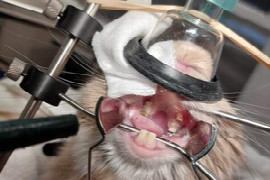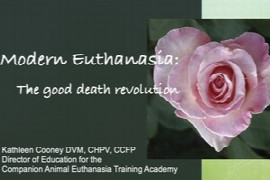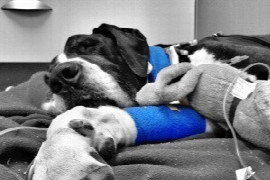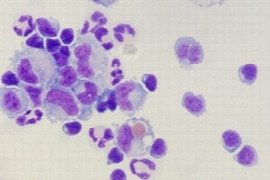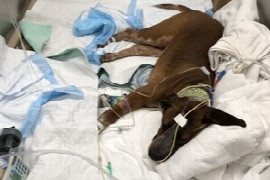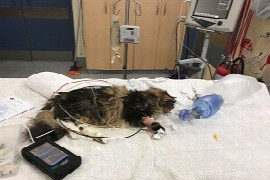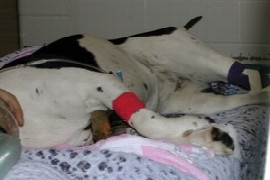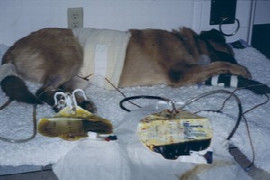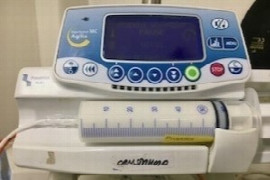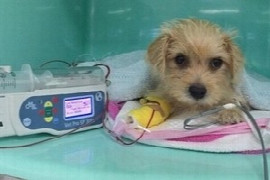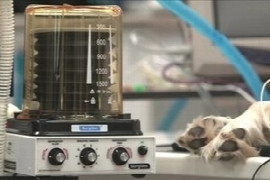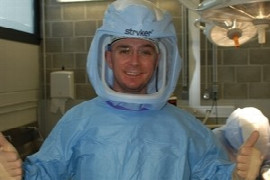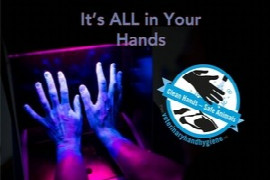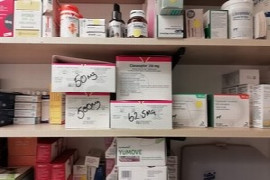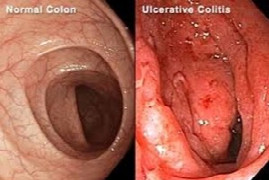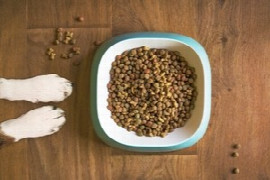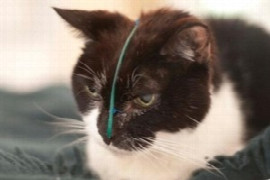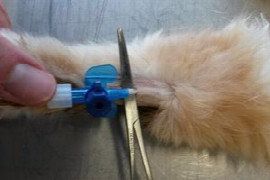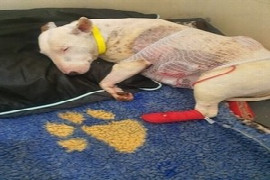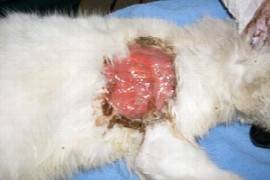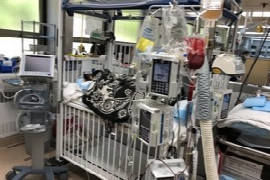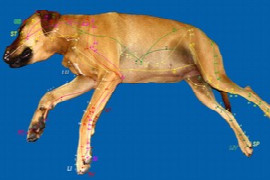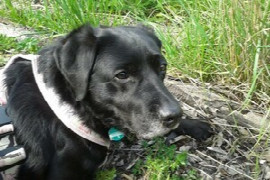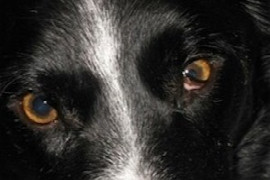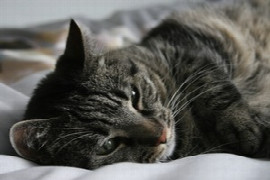Résultat de la recherche pour "nurse consults" (204 articles)
Nurse Consults - Making the Most of Nurse Skills in GP
Nurses have a vital role to play in the veterinary practice, in the advice of clients, diagnostics work and preventative healthcare...
Durée:
0:54 h
Intervenant(e):
Nicola Lakeman
à partir de 1
US$ 49,40
(incl. TVA)
(incl. TVA)
“Puppy & Kitten milestone moments: Using Stress Free approaches for first consults, treatments and puppy schools”
A new puppy or kitten has many ‘firsts’. Their first vet visit, groom, play session, illness. Some of these things are fun, positive and safe, while others can be frightening and painful. Our role is to ensure we create positive, safe and Stress Free ‘firsts’ to help develop happy, confident pets. This Stress Free Pets continuing education webinar will look at how we can use Stress Free Pets approaches to the many ‘firsts’ we see in clinic including the all-important first vet visit, and discussions on how Stress Free can assist in puppy school.
Durée:
1:08 h
Intervenant(e):
Serena Dean
à partir de 1
US$ 49,40
(incl. TVA)
(incl. TVA)
IMHA What Nurses Need to Know.
Exploring immune mediated haemolytic anaemia and the implications on nursing care and management.
Durée:
1:20 h
Intervenant(e):
Kelly Druce
à partir de 1
US$ 49,40
(incl. TVA)
(incl. TVA)
Arterial Blood Gas: Why, where, how, and what does it tell you
This webinar is all about arterial blood gasses: Where, how, and why to collect them, and what the results say about your patient’s lung function.
Durée:
1:01 h
Intervenant(e):
Melissa Claus
à partir de 1
US$ 49,40
(incl. TVA)
(incl. TVA)
We are anaesthetising WHAT? Approaches for anaesthetising and monitoring exotic patient
A guide to approaching anaesthesia in exotics
Durée:
0:52 h
Intervenant(e):
Rena MacFarlane
à partir de 1
US$ 49,40
(incl. TVA)
(incl. TVA)
Step-by-Step - How to Perform Professional Periodontal Therapy for Nurses
This webinar will discuss what is involved in periodontal therapy, including instruments and equipment used, as well as homecare advice for maintaining periodontal health.
Durée:
1:08 h
Intervenant(e):
Kayoko Kuroda
à partir de 1
US$ 49,40
(incl. TVA)
(incl. TVA)
Different Analgesic Techniques in Small Animals for ECC Nurses
Pain scoring patients in the ECC department to ensure they have the correct levels of analgesia being delivered.
Durée:
0:54 h
Intervenant(e):
Anita Parkin
à partir de 1
US$ 49,40
(incl. TVA)
(incl. TVA)
Tube Management for ECC Nurses
In this lecture, we will learn about the nursing care and considerations for multiple tubes in our critical patients.
Durée:
0:53 h
Intervenant(e):
Tami Lind
à partir de 1
US$ 49,40
(incl. TVA)
(incl. TVA)
Keep Calm and Breathe On: The Ins and Outs of Mechanical Ventilation
Critical care ventilation encompasses a wide scope of nursing knowledge from understanding ventilator modes, to advanced physiology and intensive patient monitoring. In this CE Jennifer Lyons will review all aspects of managing a CC vent case.
Durée:
1:04 h
Intervenant(e):
Jennifer Lyons
à partir de 1
US$ 49,40
(incl. TVA)
(incl. TVA)
Management of the Isolation Patient
Veterinary hospitals frequently admit patients with potentially infectious conditions, necessitating stringent isolation practices to prevent the spread of infections to other animals. Prersented by Asha Yeoman
Durée:
1:15 h
Intervenant(e):
Asha Yeoman
à partir de 1
US$ 49,40
(incl. TVA)
(incl. TVA)
Conflict is a Dish Best Served Cold
Most people associate conflict with stress, anger, and anxiety, when it is actually a normal process that is neither good nor bad….
Durée:
1:02 h
Intervenant(e):
Cat Walker, AMDRAS, RVN, Cert IV VN, BA(Hons) (International Studies), LLB, Grad Dip (Legal Practice)
à partir de 1
US$ 49,40
(incl. TVA)
(incl. TVA)
Practical application of antimicrobial stewardship in wound care
Antimicrobial resistance is a growing one health issue, wound care is an area where nurses can champion antimicrobial stewardship by implementing protocols that aid in preventing wound infections while supporting wound healing. Presented by Amanda Curtis.
Durée:
0:52 h
Intervenant(e):
Amanda Curtis
à partir de 1
US$ 49,40
(incl. TVA)
(incl. TVA)
Computed Tomography for Veterinary Nurses - How to get the best images out of your system
Improve your knowledge and understanding of how Computed Tomography works, and learn recommended techniques for optimum image quality. A webinar with Ash Moors.
Durée:
1:03 h
Intervenant(e):
Ashley Moors
à partir de 1
US$ 49,40
(incl. TVA)
(incl. TVA)
Glyc-What? Explaining the Fundamental Role of the Endothelial Glycocalyx
Revisiting a little bit of anatomy and physiology to gain an understanding in how this dynamic microstructure has become an important consideration when delivering IVFT to our patients.
Durée:
0:45 h
Intervenant(e):
Jess Male Cert IV TAE, RVN, AVN, DipVN (ECC), RN, BSc, Biological and Biomedical
à partir de 1
US$ 49,40
(incl. TVA)
(incl. TVA)
Modern Euthanasia: The good death revolution (for Nurses)
Euthanasia is going through an evolution. It is changing for the better; techniques, protocols, pricing, and attitudes. Patients deserve the best, clients demand the best, and our veterinary teams want to deliver it. We will explore new trends in hospital euthanasia experiences, reinforce those oldie but goodie protocols, and even dive into the new concept of dysthanasia. Led by Dr. Kathleen Cooney, founder and director of education for the Companion Animal Euthanasia Training Academy, this webinar will become the spark to modernize your euthanasia appointments.
Durée:
0:49 h
Intervenant(e):
Kathleen Cooney
à partir de 1
US$ 49,40
(incl. TVA)
(incl. TVA)
Resilience and Wellbeing Practices for Veterinary Nurses
The experience of stress is a personal one, and no two people will experience situations the same way. An event at work that could be considered a major stressful event for one nurse, may be seen by others as energising and challenging.
This webinar will explore evidence-based practices for developing resilience, and subsequently, greater wellbeing as a veterinary nurse. Topics include:
• Developing emotional insight, and self-awareness skills
• Personal resilience-building and wellbeing practices
• Practical strategies for handling difficult situations at work
Durée:
0:59 h
Intervenant(e):
Rosie Overfield
à partir de 1
US$ 49,40
(incl. TVA)
(incl. TVA)
Pre-anaesthetic assessment of the small animal patient
Anaesthesia is a vital tool in small animal practice to facilitate diagnostic, corrective and curative procedures. Principles of appropriate drug choices and techniques are paramount to reduce peri-anaesthetic complications. But how do we come to make these choices? Pre-anaesthetic assessment of the individual patient in respect to signalment, disease status and procedure is invaluable in making these decisions. Pertinent history, and thorough physical examinations are the cornerstone to guide further relevant testing. Risk assessments and the factors that influence these risks, need to be identified and remedied where possible, prior to anaesthesia. Diagnostic testing with respect to blood work, electrocardiograms, and imaging are point of care tools which can add significant information to assist in our quest for the most appropriate peri-anaesthetic plan.
Durée:
0:57 h
Intervenant(e):
Louise Bass
à partir de 1
US$ 49,40
(incl. TVA)
(incl. TVA)
Central Venous Pressure in the Veterinary Patient
Central venous pressure (or CVP) monitoring has been used in veterinary medicine as a tool for monitoring cardiac function and managing fluid therapy. In critical patients and complex anaesthetics, the technique expands the availability of information we have for patient management and helps provide a more complete picture of how the cardiovascular system is operating in conjunction with other monitoring techniques. As veterinary nurses/technicians, is it important to understand when, how and why to use central lines for critical patients and the importance of central line care and maintenance post-operatively.
This webinar will discuss the use of CVP monitoring in small animal practice with an overview of placement and management of central lines, techniques for monitoring CVP, interpretation of CVP and its limitations. We will also cover some of the controversies with its use in human medicine and briefly touch on other uses for central lines in our critical patients. Being comfortable with CVP monitoring will provide benefits in monitoring those complicated anaesthetics in critical patients and confidence in helping to make correct management decisions for better patient outcomes.
Durée:
0:36 h
Intervenant(e):
Cheryl MacPherson
à partir de 1
US$ 49,40
(incl. TVA)
(incl. TVA)
Managing Busy Shifts without Burnout
Have you been asked to do shift work but feel leery about the rumours of the many challenges that come with it? Or are you a seasoned shift worker feeling like this gruelling schedule is catching up with you as each shift is filled with increasing errors, brain fog, exhaustion, overwhelm - and even weight gain?
Durée:
0:54 h
Intervenant(e):
Dori martin
à partir de 1
US$ 49,40
(incl. TVA)
(incl. TVA)
CSF evaluation - Cytology and Infectious Disease Diagnostics
Evaluation of CSF is an important diagnostic tool for assessment of patients displaying neurological abnormalities. Basic cytological evaluation of CSF includes determination of the total and differential leukocyte counts and protein concentration.
Durée:
0:53 h
Intervenant(e):
Leanne Twomey
à partir de 1
US$ 49,40
(incl. TVA)
(incl. TVA)
Blood Smear Interpretation – finding clues to diagnose disease
Ever wished you knew what you were looking at on a blood smear, and what it meant? This webinar will help you to uncover important clues on blood smears that identify diseases processes and then integrate those findings with clinical and haematology data to diagnose and monitor disease.
Durée:
0:42 h
Intervenant(e):
Natalie Courtman
à partir de 1
US$ 49,40
(incl. TVA)
(incl. TVA)
Preparing the Critical Patient for Surgery
Emergency surgery is just that – an emergency – and often needs to happen as soon as possible. But immediate anesthesia should not be an excuse for not preparing the patient or the nursing team, it’s even more reason to prepare! This lecture will cover the important body systems and abnormalities that must be treated and assessed prior to emergency anesthesia to ensure a smooth procedure and successful patient recovery. An emphasis is placed on critical thinking skills and teamwork.
Durée:
0:52 h
Intervenant(e):
Megan Brashear
à partir de 1
US$ 49,40
(incl. TVA)
(incl. TVA)
Shock – what is it, how is it treated and what do I monitor
All about Shock A patient presents in “Shock” – what does this actually mean? What is happening to that patient and how can we best treat this critical condition? There are 3 different types of shock - hypovolaemic, distributive and cardiogenic, this webinar will explain what these terms mean and how you can differentiate between the different forms of shock...
Durée:
0:46 h
Intervenant(e):
Skye Carr
à partir de 1
US$ 49,40
(incl. TVA)
(incl. TVA)
Physical and Chemical Restraint in the Emergency Room (for Nurses)
Injured, and many ill patients, are painful sometimes it is obvious but others not. History and physical examination upon admission must include assessment, severity and location of pain to avoid these areas during restraint. Extreme caution with a penetrating foreign body is presented. Various procedures are required to treat and diagnose patients presenting on an emergency basis.
Durée:
0:50 h
Intervenant(e):
Karol Mathews
à partir de 1
US$ 49,40
(incl. TVA)
(incl. TVA)
Monitoring the Recovering Ill or Injured Patient - Key Points
The team approach is stressed. Orders are outlined and some highlighted for discussion. Vital signs and further testing, quick assessment tests (QATs), fluid therapy, ongoing fluid losses from head to toe, nutritional support, assessing for systemic illness, tips for post-surgical observations and pain management.
Durée:
0:46 h
Intervenant(e):
Karol Mathews
à partir de 1
US$ 49,40
(incl. TVA)
(incl. TVA)
Total intravenous anaesthesia TIVA - when and how - for Nurses
Total intravenous anaesthesia (TIVA) involves the maintenance of general anaesthesia using only injectable anaesthetic drugs, rather than the more traditional practice of using inhalant agents. In some situations, such as work in remote areas, this technique is of a practical advantage. In other cases, for example, severe neurological disease or during some respiratory procedures, TIVA is a safer option compared to inhalational anaesthesia...
Durée:
0:54 h
Intervenant(e):
Jennifer Davis
à partir de 1
US$ 49,40
(incl. TVA)
(incl. TVA)
Transfusion Medicine – not just for the faint hearted
We give blood products on an increasingly frequency in veterinary medicine, but how much do we really know about the product we are giving, the indications for each product and possible sequelae to this administration of foreign products? Blood and blood products are foreign to our patients, and each time we give them we have to weigh up the risks vs the benefits to our patients...
Durée:
0:51 h
Intervenant(e):
Samantha Livingstone
à partir de 1
US$ 49,40
(incl. TVA)
(incl. TVA)
Acute Respiratory Distress Syndrome
Acute Respiratory Distress Syndrome is defined as an acute, diffuse, inflammatory lung condition leading to significant changes in a patient’s lung tissues, ability to oxygenate and ability to breath. It is the most severe form of Acute Lung Injury (ALI) and is often fatal with very few effective modalities in human medicine let alone veterinary medicine...
Durée:
0:47 h
Intervenant(e):
Cheryl MacPherson
à partir de 1
US$ 49,40
(incl. TVA)
(incl. TVA)
Prevention of Surgical Site Infection for Nurses
Surgical site infections (SSI) are the burden of surgery. They lead to increased health care cost due to additional treatment, antibiotics, hospital stay and excess death. Further, these complications create emotional and financial distress for owners and drastically affect the animal’s welfare...
Durée:
0:57 h
Intervenant(e):
Denis Verwilghen
à partir de 1
US$ 49,40
(incl. TVA)
(incl. TVA)
The WHO 5 moments of hand hygiene - a concept applicable in veterinary medicine
Over the past few decades, the World Health Organisation (WHO) has put increased focus on hand hygiene campaigns under the slogan “Clean Hands – Save Lives” following the global recognition of hand hygiene being a key factor in reducing surgical site (SSI) and other hospital associated infections (HAIs)...
Durée:
0:58 h
Intervenant(e):
Denis Verwilghen
à partir de 1
US$ 49,40
(incl. TVA)
(incl. TVA)
Everyday Pharmacology for Veterinary Nurses.
Once the drugs are within the body the drug is then absorbed and distributed around the body. This physical process occurs through a number of processes – diffusion, penetration across membranes, binding to plasma proteins and partition into fat and other tissues. This process is called drug disposition and is divided into four stages:
Durée:
0:57 h
Intervenant(e):
Nicola Lakeman
à partir de 1
US$ 49,40
(incl. TVA)
(incl. TVA)
Inflammatory Bowel Disease for Nurses
The causes of IBD can be multifactorial and therefore more challenging to diagnose. This lecture will explore the different aetiologies for IBD and how these effect what long-term treatment or management regimes are utilised...
Durée:
1:03 h
Intervenant(e):
Nicola Lakeman
à partir de 1
US$ 49,40
(incl. TVA)
(incl. TVA)
Clinical approach of patients with sodium disturbances
Goals of the lecture will be able to appropriately treat hyponatremia and hypernatremia, with both acute and chronic changes. We will review the sodium and water balance physiology, discussing triggers and ...
Durée:
0:54 h
Intervenant(e):
Julien Guillaumin
à partir de 1
US$ 49,40
(incl. TVA)
(incl. TVA)
Anaesthesia Mistake Awareness For Nurses
During this session, you'll discover the most common causes of anaesthesia-related errors as well as insight on how to prevent them...
Durée:
0:54 h
Intervenant(e):
Heidi Reuss-Lamky
à partir de 1
US$ 49,40
(incl. TVA)
(incl. TVA)
Feeding Trends in Dogs and Cats - What is the Science for Nurses
Vet Nurses are often the first people our clients speak to about diet, and these days there are so many options - raw, dry kibble, wet food, vegan food and homemade diets.
It's very important that nurses are able to discuss these options with clients, with the correct scientific information to share.
Durée:
0:58 h
Intervenant(e):
Stefanie Handl
à partir de 1
US$ 49,40
(incl. TVA)
(incl. TVA)
Critical Care Nutrition for Nurses
Proper nutrition in critical patients is crucial to faster, more complete recoveries and shorter hospital stays.
Durée:
0:57 h
Intervenant(e):
Kara Burns
à partir de 1
US$ 49,40
(incl. TVA)
(incl. TVA)
Veins for Vet Nurses
This webinar will discuss the challenging ascpects of venous access and present suitble solutions for venous acces in your critically ill emergency patients.
Durée:
1:05 h
Intervenant(e):
Nadja Sigrist
à partir de 1
US$ 49,40
(incl. TVA)
(incl. TVA)
Ins and outs of tube care for Nurses
There are many different types of tubes and drains that you may come across as a veterinary nurse. This webinar will discuss the nursing considerations for maintaining and caring for different types of feeding tubes, urinary catheters, chest and abdominal drains.
Durée:
1:04 h
Intervenant(e):
Skye Carr
à partir de 1
US$ 49,40
(incl. TVA)
(incl. TVA)
Wound Management for Nurses
Wound care management is an integral part of a veterinary nurses skill set. The ability to triage, initiate treatment and help with the resolution of wounds to patients will help the veterinary nurse to feel confident in the ER.
Durée:
0:55 h
Intervenant(e):
Chloe Fay
à partir de 1
US$ 49,40
(incl. TVA)
(incl. TVA)
Recognising Disseminated Intravascular Coagulopathy for Nurses
Disseminated Intravascular Coagulation (DIC) is an acquired syndrome seen in the most critically ill or injured patients. Hallmark signs of the disease are hypercoagulability followed by inappropriate and uncontrolled bleeding that can often lead to death...
Durée:
0:52 h
Intervenant(e):
Megan Brashear
à partir de 1
US$ 49,40
(incl. TVA)
(incl. TVA)
Massage and Acupressure in Practice for Nurses
Therapeutic massage aids rehabilitating an animal following cruciate, spinal, abdominal or any orthopaedic surgical procedure. It also teaches owners and their dogs to relax and be calm, which is important in any dog training.
Durée:
0:54 h
Intervenant(e):
Elaine Cebuliak
à partir de 1
US$ 49,40
(incl. TVA)
(incl. TVA)
Complications in Feline Anaesthesia for Nurses
Our feline patients are at a high risk of anaesthesia-related morbidity and mortality compared to their canine counterparts. By understanding how to tailor the anaesthesia approach to them, we are able to reduce this risk.
Durée:
0:56 h
Intervenant(e):
Courtney Scales
à partir de 1
US$ 49,40
(incl. TVA)
(incl. TVA)
Hyperadrenocorticism - updates in diagnosis and treatment for Nurses
Hyperadrenocorticism is a well known disease that is frequently diagnosed and treated in practice however do you know what has recently changed in regards to diagnosis and treatment?
Durée:
0:48 h
Intervenant(e):
Hannah Schneider
à partir de 1
US$ 49,40
(incl. TVA)
(incl. TVA)
Anesthesia in the old patient - intra and perioperative monitoring
Old age is no disease, however it may promote disease and special considerations around an anaesthetic procedure are necessary for a good outcomes...
Durée:
0:51 h
Intervenant(e):
Elena Russold
à partir de 1
US$ 49,40
(incl. TVA)
(incl. TVA)
Human Medical Toxicity for GP Nurses
This webinar discusses the most common toxicities in dogs and cats caused by drugs used in people.
Durée:
1:01 h
Intervenant(e):
Nadja Sigrist
à partir de 1
US$ 49,40
(incl. TVA)
(incl. TVA)
Cranial nerve problems I should know about - for Nurses
Review of cranial nerve problems that every vet nurse should be able to recognize
Durée:
0:43 h
Intervenant(e):
Rita Goncalves
à partir de 1
US$ 49,40
(incl. TVA)
(incl. TVA)
Feline Pancytopenia - What Nurses Need to Know
In 2021 the veterinary world experienced an unprecedented rise in cases of feline pancytopenia, a condition previously considered rare and exceedingly challenging to manage......
Durée:
1:10 h
Intervenant(e):
Kelly Druce
à partir de 1
US$ 49,40
(incl. TVA)
(incl. TVA)
Respiratory Depression Under General Anaesthesia for Nurses
Respiratory depression in small animal anaesthesia is a very common complication.
Durée:
1:03 h
Intervenant(e):
Louise Bass
à partir de 1
US$ 49,40
(incl. TVA)
(incl. TVA)


